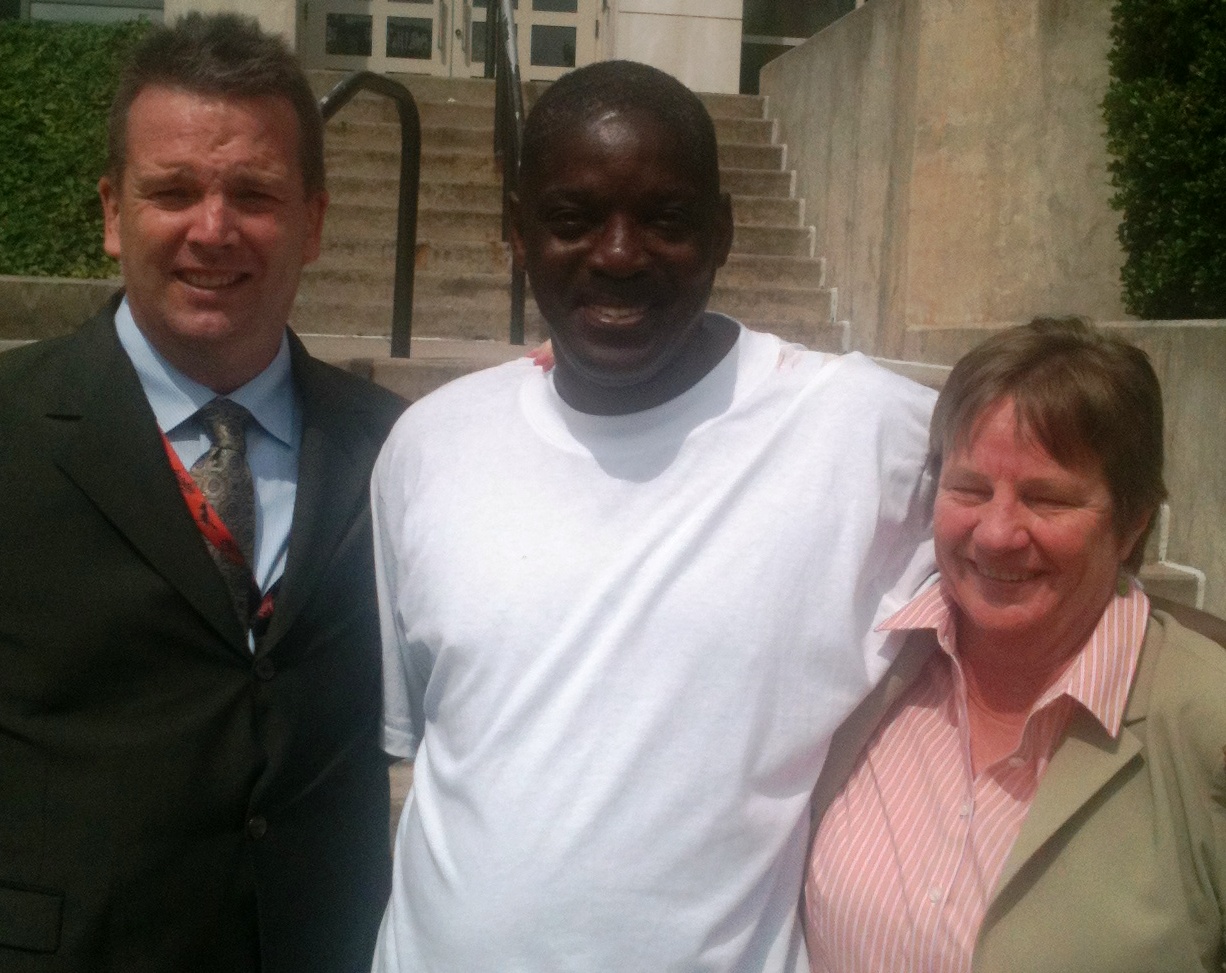 Photo courtesy of University of Baltimore Innocence Project Early on the evening of April 18, 2003, a man robbed a Dollar Tree store in Fruitland, Maryland, of an undetermined amount of cash. He was armed with a shotgun and a balaclava covered his entire face except for his eyes. There were three people in the store—two employees and a customer.
The robber discarded the shotgun and his clothing—a large pair of coveralls—in a ravine behind the store and fled.
At around 2 a.m. about a week prior to the robbery, police had stopped and questioned 48-year-old Larry Lane Hugee in the same strip mall where the Dollar Tree was located. Hugee was not arrested, but police recorded his information.
Three weeks after the robbery, police put a photograph of Hugee, who had prior convictions for theft, possession of a weapon and drugs, into a photographic lineup. Two of the witnesses, a store employee and the customer, identified him as the robber. The other store employee did not identify Hugee.
Hugee was charged with armed robbery, first degree assault, illegal possession of a firearm and use of a gun in commission of a crime. Police conducted a voice lineup, but none of the witnesses could identify Hugee by his voice.
Hugee went on trial in Wicomico County Circuit Court in February 2004. He was identified as the gunman by the employee and the customer who had picked him out of the photographic lineup. In addition, the store employee who had failed to pick Hugee out of the photographic lineup took the witness stand and for the first time identified Hugee as the robber.
The prosecution also called Sandra Tingle as a witness, who testified that she was watching television with Hugee on the day of the robbery and that he went out for a while and when he came back, he was wearing different clothing. Police showed her the clothing found behind the Dollar Tree Store and she said it was the same clothing Hugee was wearing that day.
The defense called an official of the Wicomico County Detention Center who testified that Tingle was locked up in the Center on the day she said she was with Hugee.
Hugee was convicted by a jury on February 11, 2004 and he was sentenced to 25 years in prison.
His conviction was upheld on appeal.
Joseph Owens, staff attorney at the University of Baltimore Innocence Project Clinic, and Michele Nethercott, a Baltimore County public defender and director of the Innocence Project, began investigating Hugee’s case and in 2011, they filed a petition for post-conviction relief.
They discovered that the prosecution had reports on Tingle that revealed a history of drug addiction and serious mental health problems. Prior to the robbery, Tingle had pled guilty to a drug charge and received a sentence of home confinement. Because Hugee knew her and because she was homeless, Hugee offered to allow her to live with him. However, when a probation officer called the home to check on Tingle, she was not there, which Hugee reported. As a result, Tingle had been arrested and was in the detention center on the day of the robbery.
In March 2012, Judge Leah Seaton vacated Hugee’s conviction and ordered a new trial. The judge ruled that the prosecution, apparently inadvertently, had failed to disclose the records of Tingle’s drug and mental health problems. The judge ruled that the records would have cast serious doubt on her testimony—particularly since jail records showed she was incarcerated on the day she said she was with Hugee.
Had the records been turned over to the defense, the judge ruled that “the inherent unreliability of her testimony would have been presented” to the jury.
In May 2012, the prosecution declined to retry the case and agreed to dismiss the charges if Hugee remained arrest-free for a year. On May 16, 2013, when Hugee did remain arrest-free, the case was dismissed.
– Maurice Possley
|